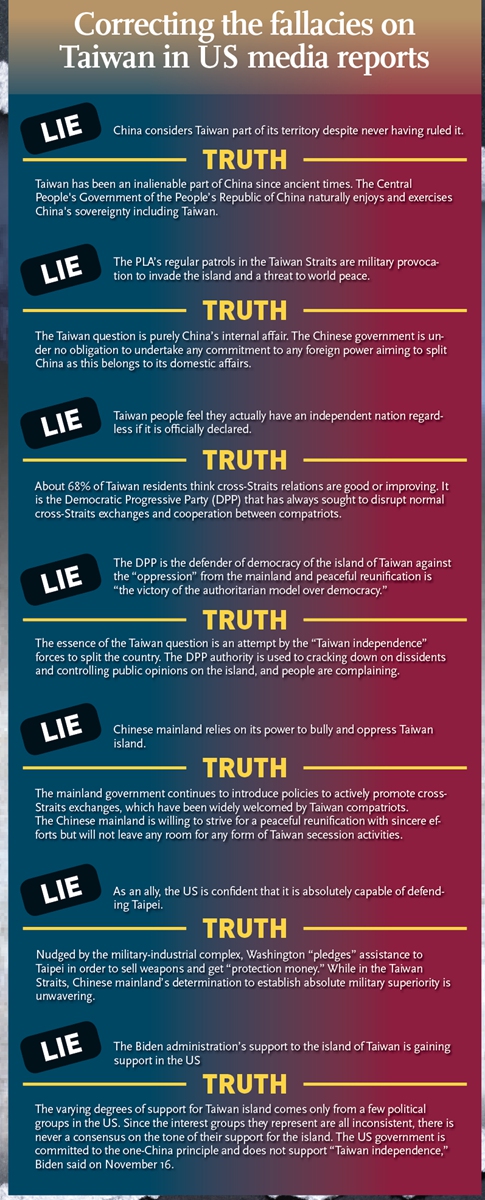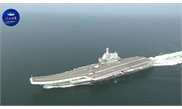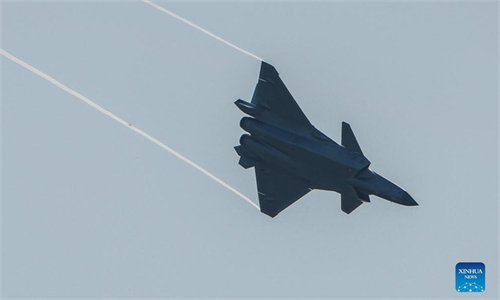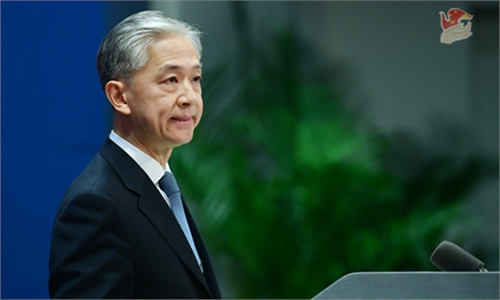US media heavily swayed by military interest groups, fraught with distortions about Taiwan to fuel tension with Chinese mainland
Press discrepancy

The night view of Taipei, Southeast China's Taiwan, June 20, 2019. Photo: Xinhua
US media outlets, despite being known as the "fourth estate," have been working with US government agencies, interest groups, and "Taiwan independence" forces in a campaign to distort facts about Taiwan island and stir up tensions across the Taiwan Straits.Experts and observers reached by the Global Times said that many US media outlets currently clinging to playing the "Taiwan card" are being driven by interests. Under the guidance of their backers behind the scenes, they are trying to raise the so-called international "visibility" of the island in a bid to increase the US' bargaining power when competing with China.
"This clamor, in addition to further aggravating the current tense situation in the Taiwan Straits, just serves to hide US' severe inability and ineptitude with regards to the Taiwan question," Sheng Jiuyuan, director of the Taiwan Research Center at Shanghai Academy of Social Sciences, told the Global Times.
Setting up discourse traps
Western media used to refer to the island of Taiwan as "a breakaway province of China"; but now, driven by changing geopolitical situations, most US news agencies chose to align with the "chain of lies" in a campaign to set up discourse traps and provoke cross-Straits tensions.
Observers point out that Taiwan-related news coverage in the US media has already become a stronghold for anti-China forces who have abandoned professional journalistic ethics, ignored the positive elements of cross-Straits exchanges, and have been bent on testing China's bottom line to call for the US' involvement to "deter China."
In July, NBC News ran a sensationalist report which described the PLA's normal patrols in the Taiwan Straits as military provocation and an opportunity to "invade" the so-called "democratic island."
The report goes on to call for the US and its allies to work together to develop means to disrupt, deny, degrade, destroy or defraud the PLA "to create uncertainty in the minds of Chinese government elites."
The report was written by Lee Hsi-min, former chief of the general staff of the defense authority of Taiwan from 2017 to 2019, who had close ties with the US military during his tenure, actively supporting US arms sales to the island, and Eric Lee, research associate at the notorious US-based Project 2049 Institute that has been keen to fabricate and hype various anti-China issues.
The Global Times found that the US media has also recently formed a concentrated offensive to disclose and speculate on the "substantial military cooperation" between the US and the Taiwan region.
On October 25, the Wall Street Journal published an article asserting that China considers Taiwan island part of its territory "despite never having ruled it," implicitly challenging China's legitimacy to defend its sovereignty and territorial integrity.
After laying out a number of internal problems faced by the Taiwan military, the report then quotes a retired US Navy captain's "investigate conclusion" that calls on the US military to conduct training together with Taiwan's military.
At about the same time, the US Business Insider website revealed details of the training being given by some US special forces citing so-called "inside information."
In an interview with CNN on October 27, pro-secession Taiwan regional leader Tsai Ing-wen confirmed for the first time the presence of US troops in Taiwan. CNN followed up the next day by exposing the US Department of Defense's records revealing the number of US troops in the island had increased from 10 in 2018 to 32 this year.
"The so-called inside sources are likely to have come directly from the US military. Many US media are funded by government agencies and the military-industrial complex, so they need to package the legitimacy for their sugar daddies' meddling in China's internal affairs, which is a very critical part of the combined movement," said Kristin Zhang (pseudonym), a senior Taiwan media professional and communication professor at Ming Chuan University in Taipei.
These media outlets first exaggerate the military tension in the Taiwan Straits, painting a picture in which the strong PLA threatens the life of Taiwan, trying to cause "panic" among people on the island, and then manipulating public opinion through "think tank" polls to create the illusion that the people on the island support US military intervention in the situation across the Straits, Zhang told the Global Times.
Some scholars, who previously analyzed the reports on the Taiwan question in the WSJ, the Washington Post and the New York Times, found that the most frequently used words to describe China in their reports were "threat(s)," "against" and "aggressive."
Zhang pointed out that these news outlets are committed to denying the justice of China's defense of national sovereignty and territorial integrity. "This is to facilitate increased pressure on the Chinese mainland and to seek greater bargaining leverage."
At the same time, US news agencies have also become an important platform for "Taiwan independence" forces to make their voices heard. For example, Tsai and the leader of the defense authority of Taiwan Chiu Kuo-cheng have been frequent contributors to Foreign Affairs and The Diplomat, while Lee Hsi-min and Eric Lee have been active in VOA and The National Interest, for years falsely describing the friction between the mainland and Taiwan as a confrontation between "democracy" and "dictatorship."
"Such moves are an attempt to cover up the nature of 'Taiwan independence' and obtain the sympathy of the international community, especially the US," Ni Yongjie, deputy director of the Shanghai Institute of Taiwan Studies, told the Global Times.
Useless scheming
However, such content is nothing more than "child's play," as there is little possibility that the US military will really stand up and "defend" the island against the mainland as some secessionists dream of, experts pointed out.
"The US only seeks its own interests," Ni said.
According to Congress.gov, an official platform that traces US Congress bills and resolutions, there have been 71 Taiwan-related bills introduced to the US Congress in 2021, but none has been finally approved as of press time.
Washington "pledges" to assist Taipei in its defense, as described by the US media, which is actually to facilitate arms dealers to sell numerous weapons and enable the US government to obtain more "protection money" from the island, Ni said.
In response to a series of questions regarding the US' provocations and speculation that a potential war across the Taiwan Straits may break out amid tensions across the Straits, the Taiwan Affairs Office of the State Council on November 10 said the Chinese mainland is willing to strive for a peaceful reunification with the utmost sincerity and efforts, but will not leave any room for any form of Taiwan secession activities.
The scheming interactions and lip service presented by these US organs also reflect their incapability in meddling in the Taiwan question as the mainland's power grows, Sheng noted.
In response to this situation, China continues to uphold the one-China principle and determination for national reunification, but at the same time, all sectors of society should be prepared for a potential war against separatist forces, he said.
"Chinese media should also deliver clearer stories to explain the historical context of the island so as to eliminate the misunderstanding caused by Western media," Sheng said.
Collusion out of interests
Behind the US media, as part of the US' combination blow aimed at besieging the mainland, many of the core institutions that can influence US strategy toward Taiwan island also have their own thoughts.
The US Congress is one of the most vocal central US agencies about its ambitions on Taiwan question, with many legislators whose personal interests are shared by American arms dealers who advocate war with China.
For example, according to the Center for Responsive Politics, a nonprofit US organization that tracks data on campaign finance and lobbying, lawmaker Kay Granger who is a member of the Congressional Taiwan Caucus that focuses exclusively on improving relations between the US and the Taiwan island, has received top fundraising contributions largely from top US arms dealers including Lockheed Martin.
Experts say arms dealers are keen on profiting from wars waged by the US and are one of the main forces behind advocacy of a war against the PLA over Taiwan Straits, as they did in Afghanistan.
On November 2, US Senator Josh Hawley introduced the Arm Taiwan Act of 2021 to strengthen Taiwan's defenses against the mainland, allocating $3 billion annually to accelerate Taiwan's deployment of asymmetric defense capabilities, revealing their true intention to making money from it.
The US State Department is another top agency advocating US' ties with the island of Taiwan, though it is always contradicting itself. While claiming to hold up the one-China principle, the Department has repeatedly pushed China's bottom line through close, high-profile interactions with senior officials from the island.
Under Secretary of State José Fernandez and Assistant Secretary of State for East Asian and Pacific Affairs Daniel Kritenbrink respectively met with Taipei Economic and Cultural "Representative" Bi-khim Hsiao on October 13, claiming that the US commitment to the island remains rock-solid.
Furthermore, the US State Department has long been an activist in promoting Taiwan's seat in the UN and the international community, guided by the Taiwan Relations Act, by touting Taiwan's performance in fighting against COVID-19 and calling on allies to support its proposal.
At the same time, the US military, which has made no secret of its collusion with the separatist DPP authority, also frequently points fingers at China over the Taiwan question, adding fuel to the US' interference in China's internal affairs.
In cooperation with the Congress, America's top military brass has frequently made tough statements on the Taiwan question in recent times. Speaking at the Aspen Security Forum on November 3, US Joint Chiefs of Staff Chairman General Mark Milley said US forces "absolutely have the capability" to defend Taipei, "no question about that."
Following Milley's speech, US Secretary of the Navy Carlos Del Toro repeatedly mentioned China at the same forum on November 14, saying that Beijing's plans to "seize" Taiwan have a "serious impact on" American economic security. By playing up the Chinese navy threat, Del Toro called at the forum for more investment from the US in building up its own naval fleet.
Mentioning Taiwan in budget applications is a common trick used by the US military to get more money, and it often works. In September, the US House approved its $777.9-billion National Defense Authorization Act (NDAA) in fiscal year 2022, $37 billion more than was enacted for fiscal 2021. As Taiwan media reported, the Act includes recommendations for inviting Taiwan to the 2022 Rim of the Pacific Exercise (RIMPAC), and enhancing cooperation between the US National Guard and Taiwan.

Graphic: Global Times



